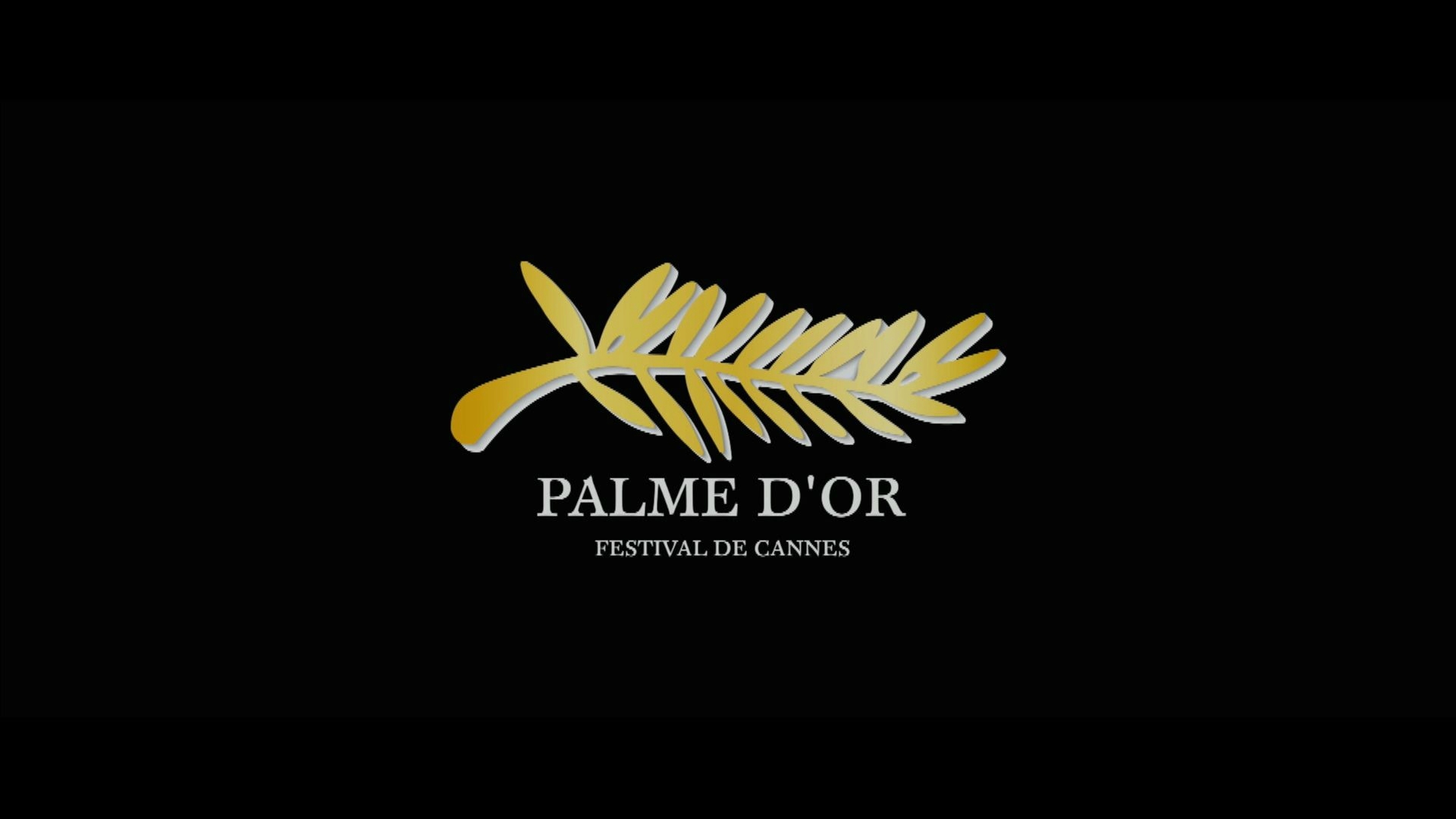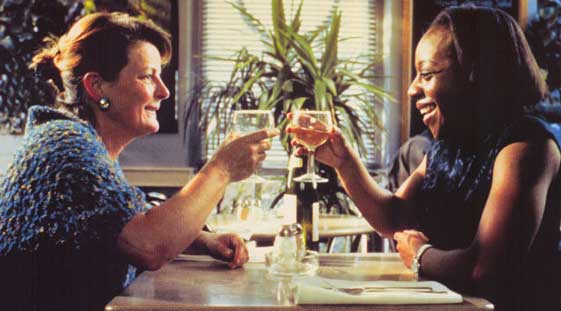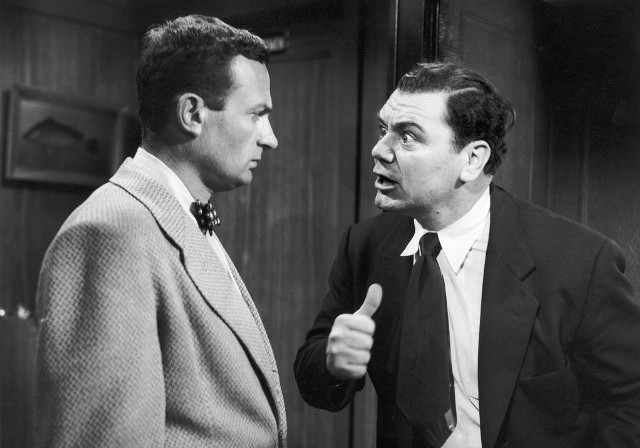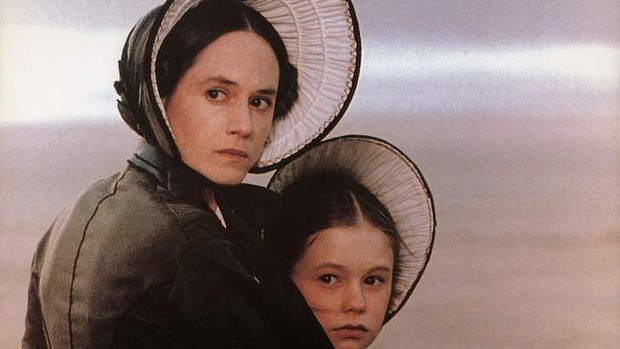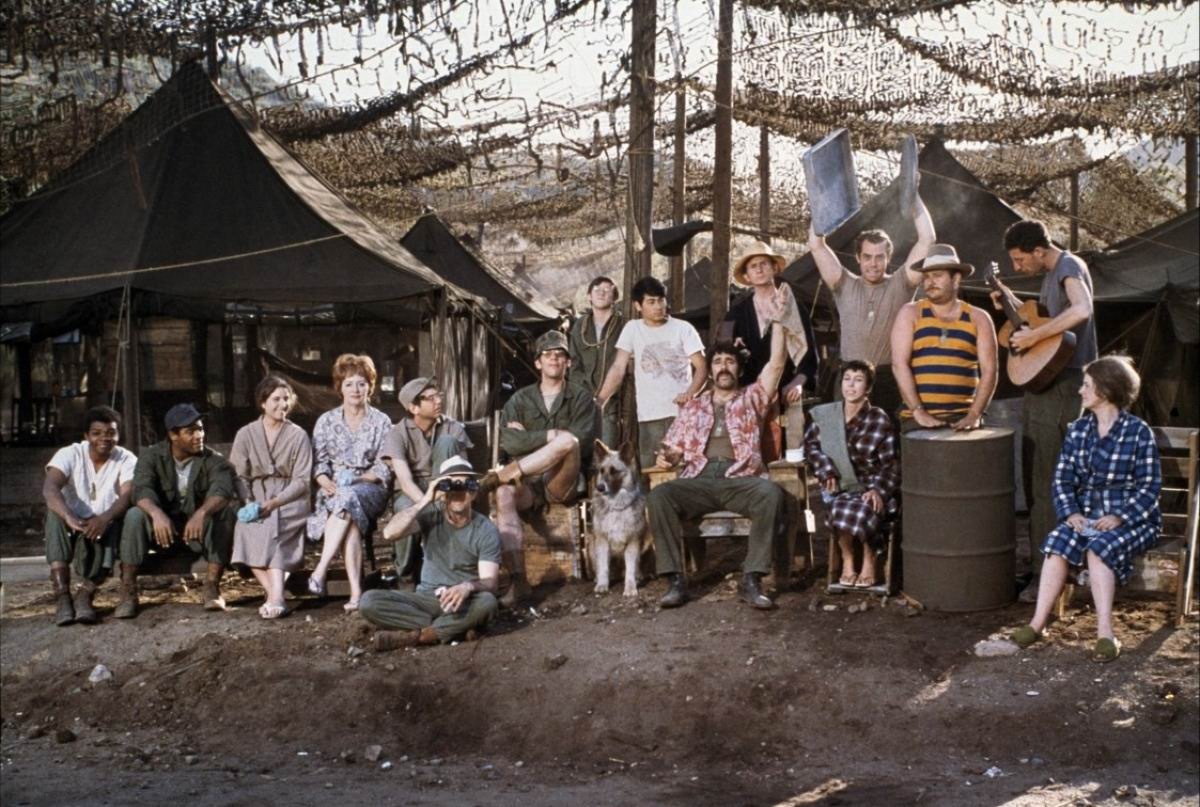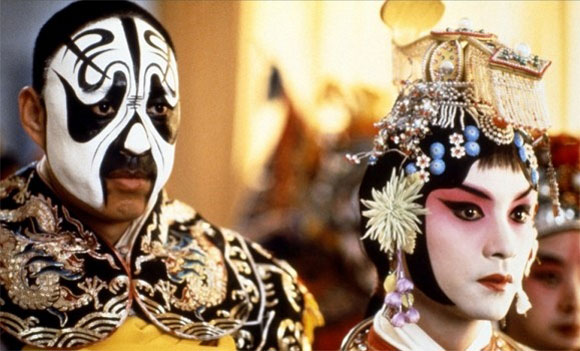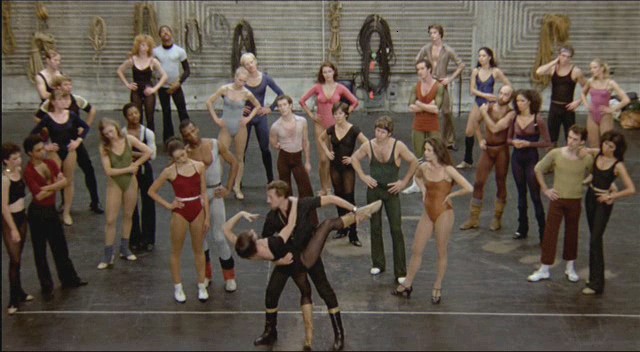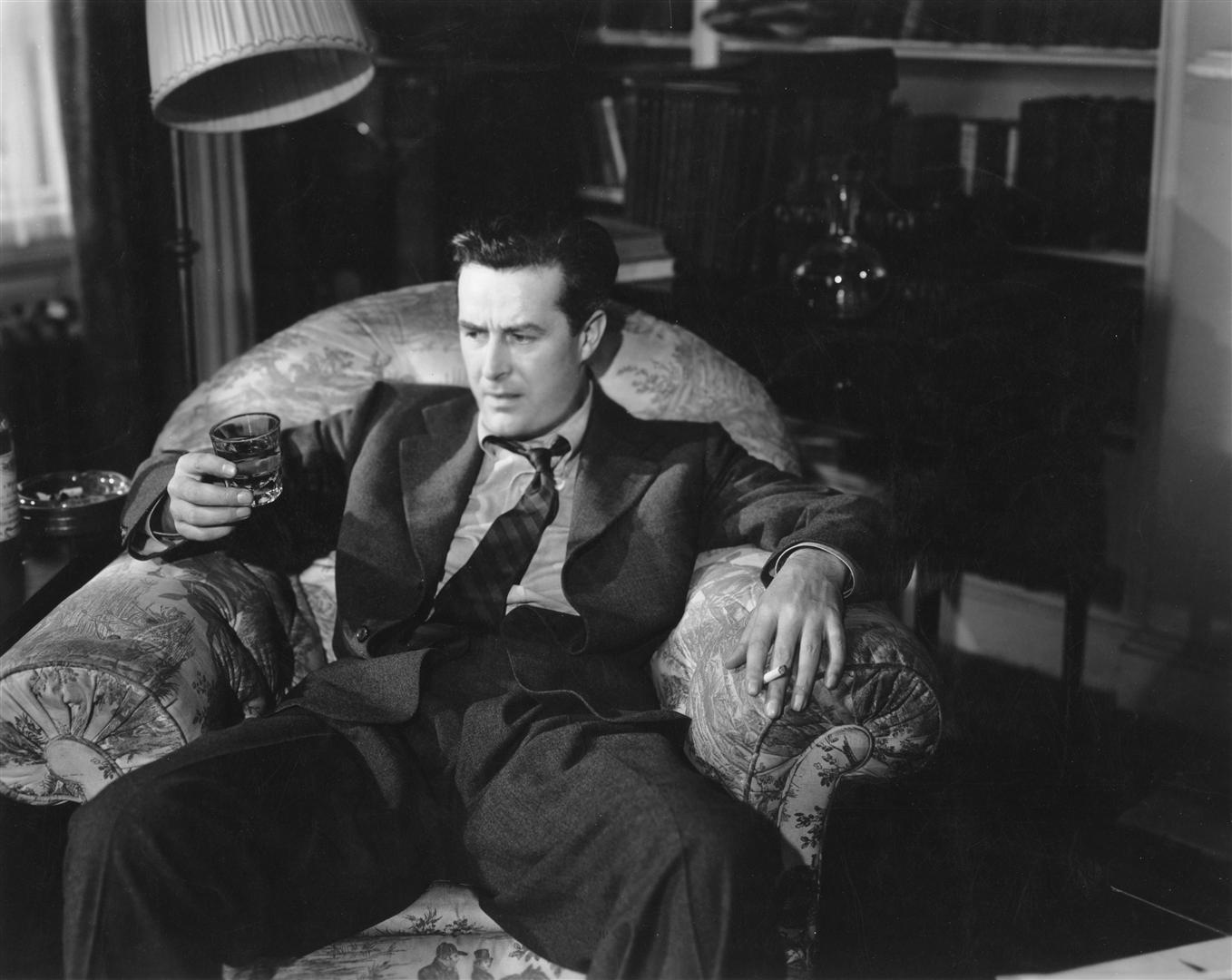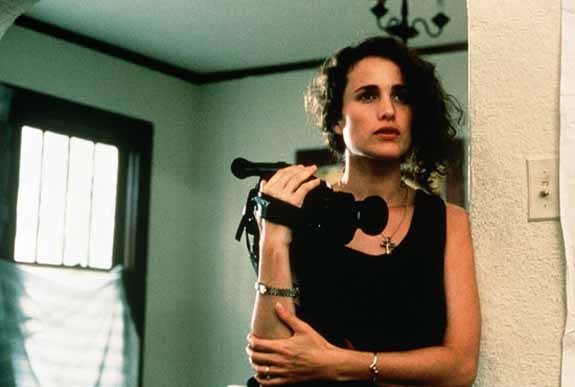With the 67th Cannes Film Festival coming to a close – the three-hour Turkish drama Winter Sleep directed by Nuri Bilge Ceylan won the Palme d’Or as Bennett Miller, Julianne Moore, Timothy Spall and others earned top honors – we wanted to cap off the ceremony by looking at 25 of the best films that have won the Palme d’Or (or the top award of the ceremony at the time) in the festival’s history.
25. Secrets & Lies (Mike Leigh, 1996)
In Competition in 1996: Breaking the Waves, Crash, Drifting Clouds, Fargo, A Self Made Hero, Stealing Beauty and more.
There is not a more personal and tailor-made style to one director than Mike Leigh, who has fashioned himself not only a master of kitchen-sink, working class drama focusing on the particulars of the lives of others, but is also a Cannes mainstay within his own right. This comes to the forefront with none other than his ensemble drama of Secrets and Lies.
Following the journey that Hortense (Marianne Jean-Baptiste) takes to discover who her birth parents are, it leads her to Cynthia (Brenda Blethyn) and her own dysfunctional family with their hangups, secrets and lies consuming them. It should be noted that this is all compounded further as Hortense, a working class woman well-educated in her own right, is black while Cynthia happens to be a white working class woman.
These two, a mother and daughter brought together again after adaption separate them, try the best they possibly can to navigate the racial and class divisions along with the familial stress this brings upon an already tense situation.
Working with members of his acting troupe that he has gathered and honed a profound relationship with, Leigh writes in his usual form well-developed and functional characters that are brought to life by Gary MacDonald, Anthony O’Donnell, Alison Steadman, Peter Wright and others in essentially camoes that flesh out the London that Leigh has brought to life and of course the main cast as well.
With Brenda Blethyn, Marianne Jean-Baptiste, Claire Rushbrook and Timothy Spall top-billed, they craft characters that express the human condition of acceptance through trial and how their own personalities deal with a situation of this magnitude in relation to their own.
In his usual remarkable fashion, Leigh lets the actors essentially create their own characters and lets them improvise to make the performances on their own. Francis Ford Coppola, the jury president for this year, must have taken delight as he saw not only a realized provision telling the harrowing story of adaptation and a generation of minorities in England but also a master storyteller using all the tools of his craft to maximum detail.
24. Marty (Delbert Mann, 1955)
The first film in the festival’s history to win the top prize under the official Palme d’Or banner and prize, and the second film to win the top prize at Cannes along with Billy Wilder’s The Lost Weekend, Mann a humanist tale from Paddy Chayefsky’s screenplay about a man looking and embracing love.
In a somber and yet towering Oscar-winning performance, Ernest Borgnine plays the titular character Marty Piletti, a humble butcher who lives with his mother at the age of 34. A socially awkward loner, Marty has resigned himself to being a bachelor, spending his free time away with his crew despite the rest of his siblings moving on to their own families.
Spurred on his mother, he meets Clara, a humble schoolteacher who is just as lonely as he is. The two strike up a relationship but bombarded by the pressures of those around him to stay in his current station for his own benefit, Marty explodes with the realization that he finally want to be happy.
Based off the teleplay with Rod Steiger in the staring role from 1953, the film shows capability and the influence the emergence of television but also how powerful a simple story of an ordinary guy looking for love can be.
23. The Piano (Jane Campion, 1993)
As Farewell, My Concubine is notable for being the only Chinese production to win the top prize at Cannes, The Piano is the only winner to have been helmed by a female director.
In New Zealand, a Scottish woman and her daughter (Ada and Flora) are sold to frontiersman Alisdair Stewart along with Ada’s cherished piano. The piano is left on the beach as Ada, who hasn’t spoken since she was a young girl, is emotionally anguished living with her new husband.
As she tries to return to her piano as often as she can, one of Stewart’s men, George Baines who has embraced the Māori culture, is transformed by Ada’s playing of the piano and trades with Stewart to procure playing lessons from her. She eventually relents and the two begin to develop an attraction for one another that transcends into full-on love.
A haunting love story anchored by a powerful Oscar-winning performance from Holly Hunter (along with another award winner in Anna Paquin’s first role, and supported by Harvey Keitel and Sam Neill), Louis Malle’s jury to tap both of these films for the top prize speaks to the diversity that one can find at the festival.
22. M*A*S*H (Robert Altman, 1970)
The bombastic film based off the novel by Richard Hooker that launched one of the most successful television series of all-time, Altman’s film was an allegory of the Vietnam War (weren’t they all?) raging at the time despite taking place in the Korean War.
Captains ‘Hawkeye’ Pierce, ‘Duke’ Forrest and ‘Trapper’ McIntyre aren’t the usual combat surgeons one would expect from the, or any, 4077th Mobile Army Surgical Hospital. They break the rules, drink, womanize, have a complete disregard for authority, but they prove that they can get the job done and are the best surgeons in the outfit. They undermine all attempts to bring discipline and order to unit in the form of Major ‘Hot Lips’ Houlihan, all the while making bets, having fake funerals, playing golf and football and anything else they can come with.
Still relatively early in his career, the iconoclastic Altman’s style didn’t jive with everyone used to the Hollywood method; Donald Sutherland never worked with him again and Hooker went on to say how he hated how much the film went away from his novel. But Altman’s film, while commenting on the Vietnam War, also comments on how crazy war itself can be. Whether you can drive away from it in a stolen Jeep or not.
21. Farewell, My Concubine (Chen Kaige, 1993)
In Competition in 1993: Body Snatchers, Faraway, So Close!, King of the Hill, Much Ado About Nothing, Naked, Raising Stones and more.
In another year with two films sharing the Palme d’Or, this was a notable year for achieving two first and still so far, only, achievements. With Kaige’s adaptation of Lilian Lee’s novel, the film was a showcase of Chinese filmmaking from the lauded Fifth Generation and is the only production of China to win the Palme d’Or.
An epic that touches on the political upheavals that have surrounded the country over time, such as the Japanese occupation during World War II and the encounter of the Communists in the late 1940s, the tale focuses on two friends – Douzi and Shitou – who meet as part of a traveling troupe and surviving together through hardships and lost friends, become the biggest stars of the Beijing stage.
Trained in different styles (Dan – female roles, and jing – male roles with painted face), a one-sided love blossoms between the two, but a courtesan who is mockingly referred to as a dragon lady, comes between the old friends.
The film is notable for initially being banned in China, with its depictions of the Cultural Revolution, but that notoriety carried a cache with it around the world, including the Academy Awards, as did its co-recipient…
20. All That Jazz (Bob Fosse, 1979)
In Competition in 1980: Being There, The Big Red One, Every Man For Himself, The Long Riders, My American Uncle, Out of the Blue and more.
To say that Bob Fosse was a busy man in the 1970s would be gross understatement. Having won the Academy Award for Best Director in 1972 for Cabaret, against Francis Ford Coppola and his work on The Godfather no less, he also made Lenny starring Dustin Hoffman, won Tonys, Emmys and made more films in-between.
All that chaos came to a head not only physically, but creatively as well where in ’79, Fosse crafted the semi-autobiographical film All That Jazz that drew inspiration from Fosse working in post-production on Lenny and staging his play of Chicago at the same time in ’75.
In All That Jazz, the story is the same but the name has changed – Joe Gideon is a Broadway director and choreographer who is working on his latest play while editing his Hollywood film that he directed all at once. The stress, along with the chain smoking, drinking and going through women like he does his cigs, takes his toll and he has heart attacks that puts his life and work in limbo.
The film takes a number of cues from another film that touches on metaphysics of directorial work and the fantastical elements that can bring forth as well, that being Fellini’s 8 1/2. Fosse touches on elements such mortality, death (including the benefits of death and rushing towards it) and show business. This must have seemed familiar to Jury president Kirk Douglas as he awarded this film the Palme d’Or.
19. The Lost Weekend (Billy Wilder, 1945)
The first of three films featured here were all co-winners before the rules of the game was solidified into the rules of the game we know them to be now. In 1939 the first film to win the festival, as it was known back then as the Grand Prix du Festival International du Film, was surprisingly Cecil B. DeMille’s Union Pacific. Due to the occupation that France was under during World War II, the festival still in this format, had 11 winners when the plethora of film’s came back to France’s shores.
One of these was the ‘strange and savage’ adaptation that won four Academy Awards in 1945, including Best Picture – Wilder’s The Lost Weekend, which touches on the dramatic conflict that busted up writer Don Birnam suffers from. A case of writer’s block and an even more severe case of alcoholism.
Despite the efforts of his brother Wick (played by Phillip Terry) and the tireless love of his girlfriend Helen (played by Jane Wyman), the allure of the bottle, the perfect circle, and he stumbles further and further until he breaks and contemplates suicide.
‘Don the writer’ and ‘Don the drunk’ are not two different people as Don hangs his excuses on, but the same person and through that realization, the man is able to come through the other side and wonder if anyone else is unable to get out of the same predicament as him.
But this film, a critical and commercial success, was one of the first of its scale to depict the very real trauma and effects of alcoholism and Ray Milland’s egoless Oscar-winning performance went a long way in showcasing that depiction on the silver screen.
18. sex lies and videotape (Steven Soderbergh, 1989)
In Competition in 1989: A Cry in the Dark, Cinema Paradiso, Do the Right Thing, Lost Angels, Mystery Train, Sweetie and more.
Five years after Wenders won the festival’s top prize, he comes back this time around as the Jury president to reside over a selection that touched on a landmark film in the emerging American independent scene.
Involving four main characters all sexually intertwined in Baton Rouge (Graham, John, Ann and Cynthia), Ann is married to John who is a practicing lawyer involving an affair with Ann’s sister Cynthia. John’s old friend from college, Graham, drifts back into town which is also where his old college girlfriend Elizabeth is living at.
Happening upon Graham’s apartment which is full of videotapes, Ann discovers that he interviews women about their sexual desires, histories and fantasies as the only means for him to find any pleasure himself. At first horrified by this seemingly perverse action, Ann who has never experienced an orgasm in her life, discovers about her husband’s tryst and makes her own videotape with Graham.
The film was a breakout for not only the cast – James Spader, Andie MacDowell and Peter Gallagher in particular – but also for Soderbergh and the brand of Miramax that distributed the film as well. As often in their history, Cannes was ahead of the curve in awarding budding talent that had made its mark.
